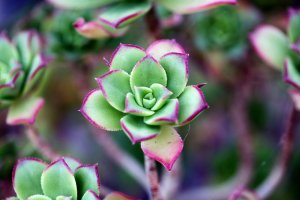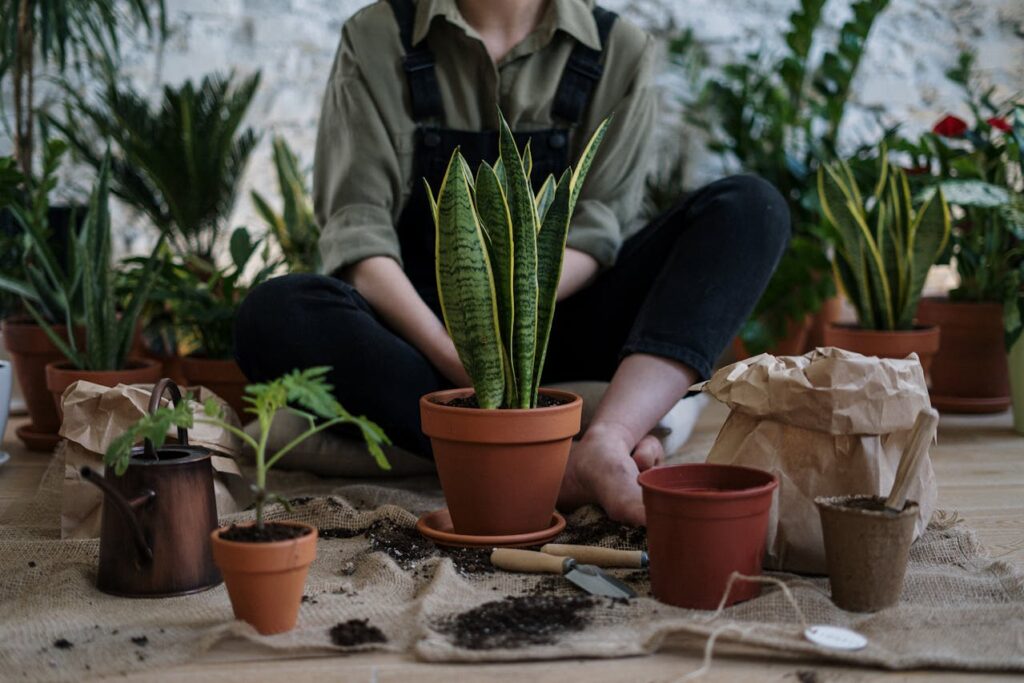Gardening in India can be a fulfilling and rewarding experience, whether you have a spacious backyard, a small balcony, or even just a few pots indoors. However, like any hobby, it requires some knowledge and care to ensure success. Here are some dos and don’ts to keep in mind when gardening in India:
Do’s:

1. Research and Plan
Before starting your garden, research the types of plants that thrive in your specific region of India. Consider factors such as climate, soil type, and sunlight exposure. Plan your garden layout accordingly, taking into account the space available and the needs of each plant.
2. Start Small
If you’re new to gardening, start with a small area or a few pots to avoid feeling overwhelmed. Choose easy-to-grow plants that are well-suited to your local climate and conditions. As you gain experience and confidence, you can gradually expand your garden.
3. Prepare the Soil
Good soil is essential for healthy plant growth. Invest in quality potting mix or improve your garden soil with organic matter such as compost or well-rotted manure. Ensure proper drainage to prevent waterlogging, especially during the monsoon season.
4. Water Wisely
Water your plants regularly, especially during dry spells, but be mindful not to overwater. Different plants have different water requirements, so adjust your watering schedule accordingly. Water early in the morning or late in the evening to minimize evaporation and water loss.
5. Provide Adequate Sunlight
Most plants require sunlight to photosynthesize and grow. Choose a sunny spot for sun-loving plants and a partially shaded area for those who prefer indirect light. Observe the sunlight patterns in your garden throughout the day and position your plants accordingly.
6. Mulch
Mulching helps conserve moisture, suppress weeds, and improve soil fertility. Use organic mulches such as shredded leaves, straw, or grass clippings to cover the soil surface around your plants. Mulching also helps regulate soil temperature, which is especially beneficial during India’s hot summers.
7. Prune Regularly
Pruning helps promote healthy growth, remove dead or diseased branches, and shape your plants. Regularly trim back overgrown foliage and prune flowering plants to encourage new blooms. Use clean, sharp tools and prune at the correct time of year for each plant species.
8. Monitor for Pests and Diseases
Keep an eye out for signs of pests or diseases in your garden, such as yellowing leaves, holes in foliage, or unusual spots. Practice integrated pest management (IPM) techniques, such as handpicking pests, using natural predators, and applying organic pesticides sparingly if necessary.
9. Stay Organic
Whenever possible, opt for organic gardening practices to minimize environmental impact and promote biodiversity. Use organic fertilizers, pesticides, and soil amendments, and avoid synthetic chemicals that can harm beneficial insects, soil microbes, and wildlife.
10. Enjoy the Process
Gardening is a journey, not a destination. Take time to appreciate the beauty of your plants, observe their growth and changes, and enjoy the therapeutic benefits of working in the garden. Celebrate your successes and learn from your challenges along the way.
Don’t s:

1. Don’t Overcrowd Plants
Avoid planting too many plants close together, as this can lead to competition for resources such as water, sunlight, and nutrients. Give each plant enough space to grow and spread out, taking into account their mature size.
2. Don’t Neglect Drainage
Poor drainage can cause waterlogged soil, root rot, and other problems for your plants. Ensure that pots have drainage holes and that garden beds are properly graded to allow excess water to drain away. Avoid planting in low-lying areas that are prone to waterlogging.
3. Don’t Overfertilize
While fertilizers are essential for plant growth, overapplication can lead to nutrient imbalances, salt buildup in the soil, and damage to plant roots. Follow the recommended dosage on fertilizer labels and avoid applying fertilizers excessively or too frequently.
4. Don’t Ignore Seasonal Changes
India experiences distinct seasons, each with its challenges and opportunities for gardening. Pay attention to seasonal changes in temperature, rainfall, and sunlight, and adjust your gardening practices accordingly. Planting and maintenance tasks should be timed to coincide with the optimal conditions for each plant species.
5. Don’t Use Harmful Chemicals
Avoid using synthetic pesticides and herbicides that can harm beneficial insects, pollinators, and other wildlife. Instead, opt for natural and organic alternatives such as neem oil, insecticidal soap, and companion planting to manage pests and weeds in your garden.
6. Don’t Overwater
While adequate watering is essential for plant health, overwatering can lead to root rot, fungal diseases, and other issues. Allow the soil to dry out slightly between waterings, especially for plants in pots or containers. Use a moisture meter or perform a finger test to determine when plants need water.
7. Don’t Plant Invasive Species
Avoid planting invasive or aggressive species that can outcompete native plants and disrupt local ecosystems. Research the plants you intend to grow and choose non-invasive alternatives whenever possible. Be cautious when introducing exotic species that may become invasive in your area.
8. Don’t Skip Maintenance
Regular maintenance is crucial for keeping your garden healthy and vibrant. Don’t neglect tasks such as weeding, watering, pruning, and mulching, as these activities help prevent problems such as weed infestations, soil erosion, and nutrient deficiencies.
9. Don’t Disregard Local Regulations
Be aware of any local regulations or restrictions related to gardening, such as water usage restrictions, pesticide bans, or protected plant species. Familiarize yourself with local laws and guidelines to ensure that your gardening practices comply with applicable regulations.
10. Don’t Get Discouraged
Gardening can be challenging at times, and not every plant will thrive despite your best efforts. Don’t get discouraged by setbacks or failures – instead, view them as opportunities to learn and improve your gardening skills. With patience, persistence, and a willingness to experiment, you’ll become a more successful gardener over time.
Conclusion
By following these dos and don’ts of gardening in India, you can create a beautiful and thriving garden that brings joy and satisfaction for years to come. Whether you’re a beginner or a seasoned gardener, there’s always something new to discover and enjoy in the wonderful world of gardening.








